TNPSC Books
-
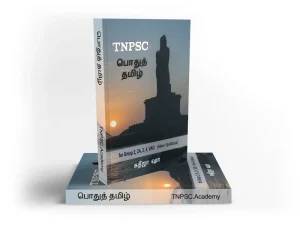 TNPSC பொதுத் தமிழ் Book - for Group 2, 2A, 3, 4 & VAO
TNPSC பொதுத் தமிழ் Book - for Group 2, 2A, 3, 4 & VAO
₹1,000.00Original price was: ₹1,000.00.₹850.00Current price is: ₹850.00. -
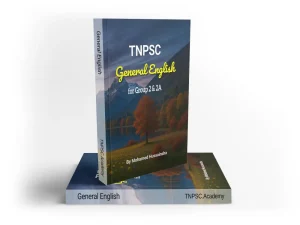 TNPSC General English Book - for Group 2 & 2A
Rated 5.00 out of 5
TNPSC General English Book - for Group 2 & 2A
Rated 5.00 out of 5₹1,000.00Original price was: ₹1,000.00.₹850.00Current price is: ₹850.00.
Group 1 Courses
Group 1 | Postal and Online Test Series | 2022
₹3,200.00Original price was: ₹3,200.00.₹2,800.00Current price is: ₹2,800.00. 88TNPSC Group 1 - Test Series - 2019
4.7₹3,500.00Original price was: ₹3,500.00.₹2,800.00Current price is: ₹2,800.00. 542
Group 2 & 2A Courses
TNPSC Group 2 and 2A - Test Series - 2019 - தமிழ்
₹2,400.00Original price was: ₹2,400.00.₹1,800.00Current price is: ₹1,800.00. 175TNPSC Group 2 and 2A - Test Series - 2019
₹2,400.00Original price was: ₹2,400.00.₹1,800.00Current price is: ₹1,800.00. 527


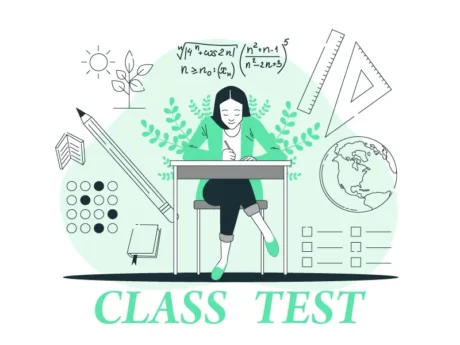

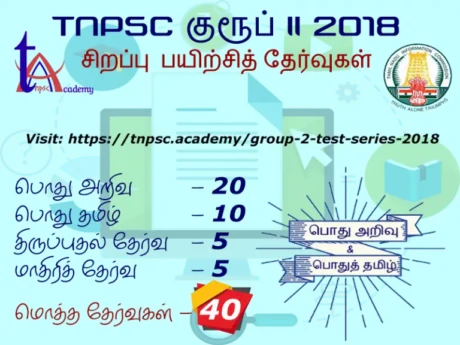
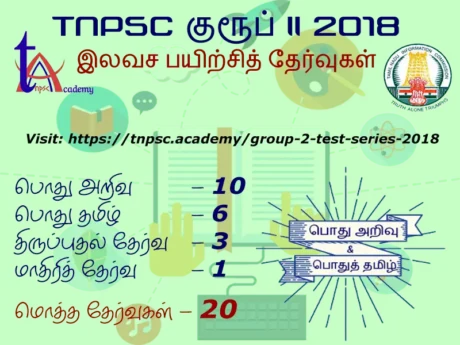






The Night the Ghost Got In
The ghost that got into our house on the night of November 17, 1915, raised such a hullabaloo of misunderstandings that I am sorry I didn’t just let it keep on walking, and go to bed. Its advent caused my mother to throw a shoe through a window of the house next door and ended up with my grandfather shooting a patrolman. I am sorry, therefore, as I have said, that I ever paid any attention to the footsteps.
They began about a quarter past one o’clock in the morning, a rhythmic, quickcadenced walking around the diningroom table. My mother was asleep in one room upstairs, my brother-Herman in another, grandfather was in the attic, in the old walnut bed which, as you will remember, once fell on my father. I had just stepped out of the bathtub and was busily rubbing myself with a towel when I heard the steps. They were the steps of a man walking rapidly around the dining-table downstairs. The light from the bathroom shone down the back-steps, which dropped directly into the dining-room; I could see the faint shine of plates on the plate-rail; I couldn’t see the table. The steps kept going round and round the table; at regular intervals a board creaked, when it was trod upon. I supposed at first that it was my father or my brother Roy, who had gone to Indianapolis but were expected home at any time. I suspected next that it was a burglar. It did not enter my mind until later that it was a ghost.
After the walking had gone on for perhaps three minutes, I tiptoed to Herman’s room. ‘Psst!’ I hissed, in the dark, shaking him. ‘Awp’, he said, in the low, hopeless tone of a despondent beagle – he always half suspected that something would ‘get him’ in the night. I told him who I was. ‘There’s something downstairs!’ I said. He got up and followed me to the head of the back staircase. The steps had ceased. Herman looked at me in some alarm: I had only the bath towel around my waist. He wanted to go back to bed, I gripped his arm.
‘There’s something down there!’ I said. Instantly the steps began again, circled the dining-room table like a man running, and started up the stairs towards us, heavily, two at a time. The light still shone palely down the stairs; we saw nothing coming; we only heard the steps. Herman rushed to his room and slammed the door. I slammed shut the door at the stairs top and held my knee against it.
After a long minute, I slowly opened it again. There was nothing there. There was no sound. None of us ever heard the ghost again.
The slamming of the doors had aroused mother: she peered out of her room. ‘What on earth are you boys doing?’ she demanded. Herman ventured out of his room. ‘Nothing,’ he said, gruffly, but he was, in colour, a light green. ‘What was all that running around downstairs?’ said mother. So she had heard the steps, too! We just looked at her. ‘Burglars!’ she shouted, intuitively. I tried to quieten her by starting lightly downstairs.
‘Come on, Herman,’ I said.
‘I’ll stay with mother,’ he said. ‘She’s all excited.’
I stepped back onto the landing.
‘Don’t either of you go a step,’ said mother. ‘We’ll call the police.’ Since the phone was downstairs, I didn’t see how we were going to call the police — nor did I want the police – but mother made one of her quick, incomparable decisions. She flung up a window of her bedroom which faced the bedroom windows of the house of a neighbour, picked up a shoe, and whammed it through a pane of glass across the narrow space that separated the two houses. Glass tinkled into the bedroom occupied by a retired engraver named Bodwell and his wife. Bodwell had been for some years in rather a bad way and was subject to mild ‘attacks’. Almost everybody we knew or lived near had some kind of attacks.
It was now about two o’clock of a moonless night; clouds hung black and low. Bodwell was at the window in a minute, shouting frothing a little, shaking his fist. ‘We’ll sell the house and go back
to Peoria,’ we could hear Mrs. Bodwell saying. It was some time before mother ‘got through’ to Bodwell. ‘Burglars!’ she shouted. ‘Burglars in the house!’ Herman and I hadn’t dared to tell her that it was not burglars but ghosts, for she was even more afraid of ghosts than of burglars. Bodwell at first thought that she meant there were burglars in his house, but finally he quieted down and called the police for us over an extension phone by his bed. After he had disappeared from the window, mother suddenly made as if to throw another shoe, not because there was further need of it but, as she later explained, because the thrill of heaving a shoe through a window glass had enormously taken her fancy. I prevented her.
The police were on hand in a commendably short time: a Ford sedan full of them, two on motorcycles, and a patrol wagon with about eight in it and a few reporters. They began banging at our front door. Flashlights shot streaks of gleam up and down the walls, across the yard, down the walk between our house and Bodwell’s. ‘Open up!’ cried a hoarse voice. ‘We’re men from Headquarters!’ I wanted to go down and let them in, since there they were, but mother wouldn’t hear of it. ‘You haven’t a stitch on,’ she pointed out. ‘You’d catch your death.’ I wound the towel around me again. Finally the cops put their shoulders to our big heavy front door with its thick bevelled glass and broke it in: I could hear a rending of wood and a splash of glass on the floor of the hall. Their lights played all over the livingroom and crisscrossed nervously in the dining-room, stabbed into hallways, shot up the front stairs and finally up the back. They caught me standing in my towel at the top. A heavy policeman bounded up the steps. ‘Who are you?’ he demanded. ‘I live here,’ I said.
The officer in charge reported to mother. ‘No sign of nobody, lady,’ he said. ‘Musta got away – whatt’d he like?’ ‘There were two or three of them,’ mother said, ‘whooping and carrying on slamming doors.’ ‘Funny,’ said the cop. ‘All ya windows and door was locked on the inside tight as a tick.’
Downstairs, we could hear the tromping of the other police. Police were all over the place; doors were yanked open, drawers were yanked open, windows were shot up and pulled down, furniture fell with dull thumps. A half-dozen policemen emerged out of the darkness of the front hallway upstairs. They began to ransack the floor; pulled beds away from walls, tore clothes off hooks in the closets, pulled suitcase and boxes off shelves. One of them found an old zither that Roy had won in a pool tournament. ‘Looky here, Joe,’ he said, strumming it with a big paw. The cop named Joe took it and turned it over. ‘What is it?’ he asked me. ‘It’s an old zither our guinea pig used to sleep on,’ I said. It was true that a pet guinea pig we once had would never sleep anywhere except on the zither, but I should never have said so. Joe and the other cop looked at me a long time. They put the zither back on a shelf.
‘No sign o’ nothing’, said the cop who had first spoken to mother, ‘The lady seems hysterical.’ They all nodded, but said nothing; just looked at me. In the small silence we all heard a creaking in the attic. Grandfather was turning over in bed. ‘What’s that?’ snapped Joe. Five or six cops sprang for the attic door before I could intervene or explain. I realized that it would be bad if they burst in on grandfather unannounced, or even announced. He was going through a phase in which he believed that General Meade’s men, under steady hammering by Stonewall Jackson, were beginning to retreat and even desert.
When I got to the attic, things were pretty confused. Grandfather had evidently jumped to the conclusion that the police were deserters from Meade’s army, trying to hide away in his attic. He bounded out of bed wearing a long flannel nightgown over long woolen pants, a nightcap, and a leather jacket around his chest. The cops must have realized at once that the indignant white-haired old man belonged to the house, but they had no chance to say so. ‘Back, ye cowardly dog!’ roared grandfather. ‘Back t’ the lines ye goodaam Lily-livered cattle!’ With that, he fetched the officer who found the zither a flat – handed smack alongside his head that sent him sprawling. The others beat a retreat, but not enough; grandfather grabbed zither’s gun from its holster and let fly. The report seemed to crack the rafters; smoke filled the attic. A cop cursed and shot his hand to his shoulder. Somehow, we all finally got downstairs again and locked the door against the old gentleman. He fired once or twice more in the darkness and then went back to bed. ‘That was grandfather’, I explained to Joe, out of breath. ‘He thinks you’re deserter.’ ‘I’ll say he does,’ said Joe.
The cops were reluctant to leave without getting their hand on somebody besides grandfather; the night had been distinctly a defeat for them. Furthermore, they obviously didn’t like the ‘layout’; something looked – and I can see their viewpoint – phony. They began to poke into things again. A reporter, a thin-faced, wispy man, came up to me. I had put on one of mother’s dress, not being able to find anything else. The reporter looked at me with mingled suspicion and interest.
‘Just what the hell is the real lowdown here, Bud?’ he asked. I decided to be frank with him. ‘We had ghosts,’ I said. He gazed at me a long time as if I were a slot machine into which he had, without results, dropped a coin. Then he walked away. The cops followed him, the one grandfather shot holding his nowbandaged arm, cursing and blaspheming. ‘I’m gonna get my gun back from that old bird,’ said the zither-cop. ‘Yeh,’ said Joe, ‘You – and who else?’ I told them I would bring it to the station house the next day.
‘What was the matter with that one policeman?’ mother asked, after they had gone. ‘Grandfather shot him,’ I said. ‘What for?’ she demanded. I told her he was a deserter. ‘Of all things!’ said mother. ‘He was such a nice-looking young man’.
Grandfather was fresh as a daisy and full of jokes at breakfast next morning. We thought at first he had forgotten all about what had happened, but he hadn’t. Over his third cup of coffee, he glared at Herman and me. ‘What was the idea of all the cops tarryhootin’ around the house last night?’ he demanded. ‘None of you bothered to leave a bottle of water beside my bed. Do you ever realize what it cost for a thirsty man to look for water in the dining room last night?’, he complained. He had us there.
James Grover Thurber (1894–1961) was an American cartoonist, author, humourist, journalist, playwright, and celebrated wit. He was best known for his cartoons and short stories published mainly in The New Yorker magazine, such as “The Catbird Seat”, and collected in his numerous books. He was one of the most popular humourists of his time, as he celebrated the comic frustrations and eccentricities of ordinary people.
Glossary
hullabaloo (v) – lot of loud noise made by people who are excited.
patrolman(n) – a patrolling police officer.
attic(n) – a space or room inside or partly inside the roof of a building
slammed(v) – shut a door or window forcefully and loudly.
gruffly(adv.) – sadly
intuitively(adv.) – without conscious reasoning, instinctively
whammed(v) – struck something forcefully
bevelled(v) – reduced to a slopping edge
rending(v) – tearing to pieces
yanked(v) – pulled with a jerk
zither(n) – a musical instrument consisting of a flat wooden sound box with numerous strings stretched across it, placed horizontally and played with fingers
guinea pig(n) – a domesticated tailless South American rodent originally raised for food
hysterical(adj.) – affected by wildly uncontrolled emotion
creaking(v) – making a squeaking sound when being moved
indignant(adj.) – feeling or showing anger or annoyance at what is perceived as unfair treatment
holster(n) – a holder made of leather for carrying handgun
rafter(n) – a beam forming part of the internal framework of a roof
deserter(n) – a person who leaves the armed force without permission.
Characters
Author – Who was narrating the story.
Author’s Mother
Herman – Author’s brother
Author’s father
Roy – Author’s another brother
Bodwell – Retired engraver, who was author’s neighbour.
Bodwell’s wife.
Joe – Police’s name.
Author’s Grandfather
General English Book
TNPSC Group 2 & 2A - Buy Now!
Online Class + Books + Tests
More Details
1. Prose Questions and Answers
1. Where was the author when he heard the noise?
2. What did the narrator think the unusual sound was?
3. What were the various sounds the brothers heard when they went downstairs?
4. Who were the narrator’s neighbours?
5. How did the Bodwells react, when a shoe was thrown into their house?
6. What did the Bodwells think when they heard the mother shout?
7. What was the grandfather wearing?
8. What conclusions did grandfather jump to when he saw the cops?
9. Were the policemen willing to leave the house?
10. What made the reporter gaze at the author?
Answers:
1. The author had just stepped out of the bathtub, when he heard the noise.
2. At first, he thought it was his father or his brother Roy. Next, he suspected that it was a burglar. Later on, he thought that it was a ghost.
3. The brothers heard like a man running and started up the stairs towards them. They thought that they were coming two at a time. They saw nothing, but only heard the steps.
4. The narrator’s neighbours were a retired engraver named Bodwell and his wife.
5. Mr. Bodwell was shouting, frothing a little, and shaking his fist. Mrs. Bodwell wanted to sell their house and go back to Peoria. For some years, he had been in a bad way and was subjected to mild attacks.
6. Bodwell thought that there were burglars in his house when they heard the mother shout.
7. The narrator’s grandfather was wearing a long flannel nightgown over long woollen pants, a nightcap, and a leather jacket around his chest.
8. His grandfather was going through fits where he believes he is in the war. He thinks that General Meade’s men are deserting under fire from Stonewall Jackson.
9. No, the policemen were not willing to leave without getting their hand on somebody besides grandfather.
10. The author had put on one of his mother’s dress, as he couldn’t find anything else. The reporter looked at him with mingled suspicion and interest.
2. Additional Questions and Answers
1. When did the ghost got into the house?
2. At what time did the author heard the footsteps?
3. Where was the author’s mother at the start?
4. Where was the grandfather?
5. Where was the author at the time of hearing the footsteps?
6. The author heard the footsteps around where?
7. Where did Author’s father and brother Roy have gone?
8. What did the author thought on hearing the footsteps?
9. What was the author wearing when he called his brother Herman?
10. Who threw shoe into the neighbour’s window?
11. Why the author or his mother not able to call the police?
12. What was the time when author’s mother threw the shoe?
13. What did Mrs.Bodwell said?
14. Why did the author and Herman did not said to his mother that it was not Burglars but Ghosts?
15. Who called the police?
16. Police came in what?
17. How the police entered the house?
18. The Old Zither belongs to?
19. Who fired from zither’s gun from its holster and let fly?
20. What did the author said to the reporter?
21. Who was actually walking around the dining?
Answers:
1. November 17, 1915.
2. Quarter past one O’ clock in the morning
3. His mother was asleep in one room upstairs.
4. Grandfather was in the attic, in the old walnut bed.
5. He stepped out of Bathtub.
6. Around the dining table downstairs.
7. To Indianapolis.
8. He thought them first to be of father or brother Roy. Then of Burglars and then of Ghosts.
9. Only bath towel.
10. Author’s mother.
11. Since the phone was in the downstairs.
12. It was about two o’clock of a moonless night.
13. We’ll sell the house and go back to Peoria.
14. Since she was more afraid of ghosts.
15. Bodwell.
16. Ford sedan full of them, two on motorcycles, and a patrol wagon with about eight in it and a few reporters.
17. The police broke into the front door of the house.
18. The old Zither was Roy’s.
19. Grandfather.
20. He said that, ‘We had Ghosts’.
21. It was Grandfather.